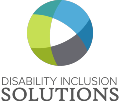Mental health disabilities are so common in the U.S. that as many as 44 million American adults report having mental health conditions.[1] Despite the high prevalence, few working Americans share this information with their bosses and coworkers for fear of being judged, passed over for a promotion, or fired.
Attitudes and beliefs about mental illness are often shaped by stereotypes and linked to stigma. In fact, in 1999, then U.S. Surgeon General, David Satcher, labeled stigma as perhaps the biggest barrier to mental health care.[2] Almost 20 years later, people with mental health disabilities are still looking for better support, whether it be to overcome discrimination or in other non-traditional ways that provide education for employers and co-workers.
According to the U.S. Centers of Disease Control and Prevention, only 25 percent of people with a mental illness feel like others are understanding or compassionate about their condition.[3] Destroying the stigma and promoting a more accepting culture must be a top priority in the workplace. One of our newest iDisability™ modules, “Accommodating Individuals with Mental Health Disabilities,” was created specifically for that purpose. It explains mental health disabilities, distinguishes myth from facts, and addresses accommodations for mental health disabilities in the workplace.
An educated workforce is essential for the success of a company, and all its employees. The iDisability™ training platform was specifically designed to educate organizations and ensure employees have the knowledge required to effectively communicate, interview, hire, accommodate and engage every employee within the workforce.
Nearly 1 million business users across a variety of industries have already benefited from iDisability™. We’re confident iDisability™ can get your team up to speed on all issues related to disability inclusion in the workplace. To schedule a demonstration, complete the contact form.
Reference material: [1]https://adata.org/factsheet/health [2]http://www.nhpf.org/library/issue-briefs/IB754_SGRptMental_4-14-00.pdf [3]https://www.cdc.gov/mentalhealth/data_stats/mental-illness.htm





0 Comments